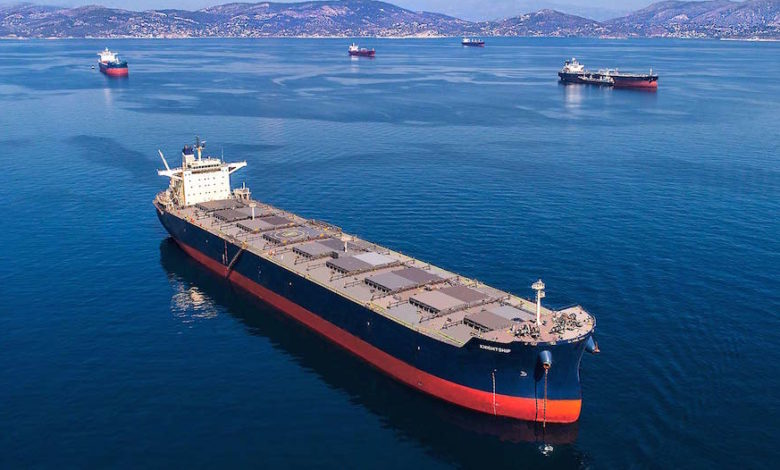
Late Friday, a Brazilian judge ordered the closure of Vale’s Itabira mine complex in the state of Minas Gerais. According to Brazilian authorities, workers are at risk of contracting coronavirus and 188 have already tested positive for the virus. The Itabira complex produced approximately 36m tons of iron ore last year, which contributes to just over 10% of Vale’s annual production. Nevertheless, Vale continues to reiterate its 310 – 330m ton production guidance for 2020.
In a note to clients over the weekend, New York dry bulk consultants Commodore Research stated: “We believe it is unlikely that even the low end of the guidance will be met, especially if the Itabira mine complex is forced to remain offline for an extended period of time.”
The news comes as iron ore shipments – and cape rates – are surging around the world. Cape rates leapt 116% last week to $7,307 per day, still a long way from breakeven.
“The improved sentiment for Capes came about as owners put up more resistance amidst continuously falling Chinese iron ore inventories (port stockpiles at their lowest since 2016),” Cleaves Securities noted in a new report published yesterday.
“The Atlantic Basin is showing signs of life as Brazilian iron ore exports increase, and Chinese iron ore stockpiles are near the lowest level since 2016. As such, we expect iron ore shipments to China from Australia and Brazil to improve throughout 2020 as Chinese steel production activity remains healthy due to government stimulus,” analysts at Jefferies stated in a new report.
“It’s looking like a classical bull run in the Capesize bc market. Chinese steel mills are ramping up production, and confidence is building for more works as reflected in last week’s steel sector purchasing managers’ index which rose above 50 in May. Mills are making healthy profits in producing steel, even at today’s high iron ore prices. Inventories of iron ore in ports have been drawed down to historical low levels,” analysts at Lorentzen & Stemoco observed in a note to clients today.
Less positive was Peter Sand, BIMCO’s chief shipping analyst, who published a dry bulk report last week, stating: “The dry bulk market is likely to recover gradually and at a slow pace alongside the global economy, but losses from the first half of the year will be difficult to recoup, even with a large-scale rollout of stimulus.”
